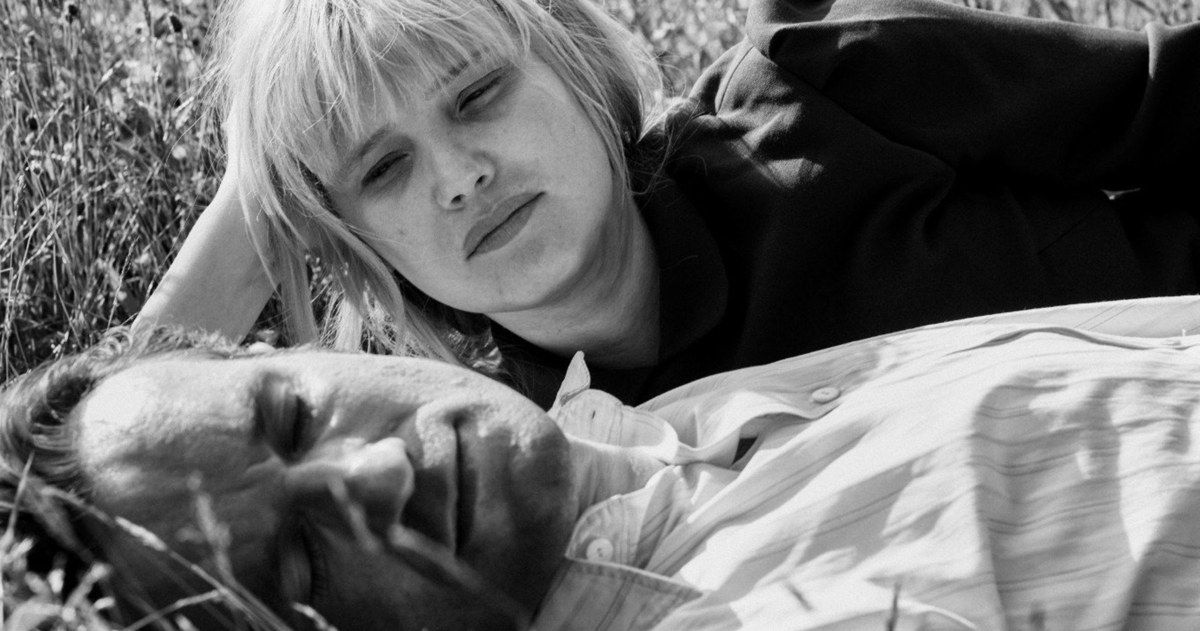Love is something that no amount of evil will ever be able to truly break. Throughout history, the love of one's family, friends and even country has continued to push through the evil and violence of war. Even if your loved one is gone, that deep connection never really fades. Particularly with the horrors of the Second World War, and of course the harrowing decades of the Cold War following soon afterwards, Europe's people still managed time and time again to find love even in the midst of terrible conflict. Those are just a few of the many fascinating ideas touched on in Paweł Pawlikowski's Cold War.
Beginning in 1949 and gradually moving through the 1950s, Cold War follows an esteemed music director who falls deeply in love with one of his singers and soon persuades her to leave their home country of Poland and find a better life for themselves. The music director, Wiktor (Tomasz Kot), is a handsome, stoic man who is suddenly taken aback by the beauty and originality of his singer, Zula (Joanna Kulig), and the film quickly delves into their secretive and, at times, tragic romance. Running alongside their love story is a simple yet fascinating part of culture: music. The beauty and timelessness of music is a very interesting aspect of the film, being that we get to experience many of the classic Polish songs as seen through its own struggling people. Music, like love, has continued to be an indestructible aspect of community and culture and that idea is so delicately spoken through Pawlikowski's acute direction. While these ideas may not be totally apparent to viewers within the first part of the movie, as the story grows they become more and more vivid.
Besides love being almost a type of weapon used during times of war, the movie also dips into how love can be viewed by those who feel it with one another. The starring couple eventually leave their Polish roots behind and move to the recovering city of Paris. This is where Cold War spends most of its wonderfully short 88-minute runtime, and it's all the better for it. The French capital and its inhabitants are still struggling to recover from World War II, but Pawlikowski shows how they still manage to fill the city's clubs and restaurants on most nights. This is where Wiktor and Zula often find themselves, as he continues to write and direct music while she finds her own solace by singing and dancing in various bars and cabarets. The couple, having found each other after a brief time a part, have both found other romantic partners. Both soon break their vows as they can't help but be together. Luckily the compelling nature of the central couple, as well as their other partners being rarely ever seen, you quickly forget to care that both are committing adultery.
As they spend more time with one another, Pawlikowski begins his wonderful balancing act of showing how the hardened music director and the beautiful blonde can for brief moments be so deeply in love its like they are the only ones on Earth - but then the following day look so perfectly content with the company of complete strangers. What's even more impressive is that Pawlikowski somehow manages to convey deeply provocative ideas like this through the most seemingly mundane of situations. One scene, in particular, is when the troubled couple hold each other while on a night boat ride through the city. It's a moment of such genuine romance that anyone who's ever had that type of affection for someone will surely become weak at the knees as it passes.
The film jumps around pretty abruptly through the 1950s, rejoining the two lovers in a variety of unexpected situations. But despite its almost overly sharp and sporadic storytelling, by the end it all feels perfectly fitted together. We jump back and forth between the couple being suddenly torn a part by the world around them and then brought swiftly back together again. It's a brilliant take on a relatively simple love story.
The time spent with Zula is probably the most compelling of the pair, and Pawlikowski seems to know that. She is the more liberal, rebellious one whereas her partner tends to stay more reserved and conservative in his actions. Her voice is a very beautiful and calming one, and the uncut sequences that show Zula singing to a crowd really makes your heart wrench. You witness the amazing healing power of music, even in the most trying of times.
What I encourage viewers of Cold War to do, especially if you are not steeped in classic European cinema, is to let the film grow on you. Let it live before you think about the film as a whole. In the beginning, I found myself slightly frustrated by the film's unending adherence to its classical style, but as it continued and I acclimatized to its rhythm, I soon found myself unable to look away. The wartime romance, the music, the spirit of human beings as they deal with such a dark past - it was all incredibly moving. The film is distributed by Amazon Studios.

